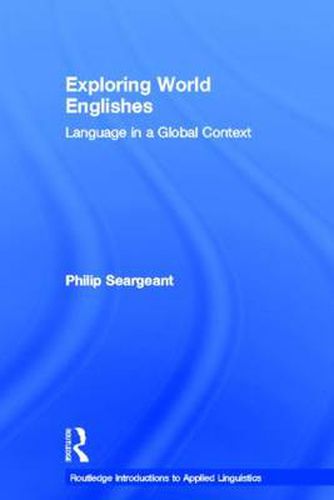Readings Newsletter
Become a Readings Member to make your shopping experience even easier.
Sign in or sign up for free!
You’re not far away from qualifying for FREE standard shipping within Australia
You’ve qualified for FREE standard shipping within Australia
The cart is loading…






Routledge Introductions to Applied Linguistics consists of introductory level textbooks covering the core topics in Applied Linguistics, designed for those entering postgraduate studies and language professionals returning to academic study. The books take an innovative practice to theory approach, with a ‘back to front’ structure which takes the reader from real life problems and issues in the field, then enters into a discussion of intervention and how to engage with these concerns. The final section concludes by tying the practical issues to theoretical foundations. Additional features include tasks with commentaries, a glossary of key terms, and an annotated further reading section. In this book Philip Seargeant surveys varieties of English existing within the world today, and the debates and controversies surrounding its present forms, functions and status in diverse world contexts. It examines how English has evolved to become a ‘global language’ and looks at the political and cultural history that has influenced this evolution. Beginning with a discussion of real-life challenges relating to world Englishes that are faced by language professionals – particularly in the contexts of language education and language planning – the book explores and illustrates the ways in which the actual use and management of English, as well as the beliefs and ideologies associated with it, play an increasingly important role in contemporary globalized society.
$9.00 standard shipping within Australia
FREE standard shipping within Australia for orders over $100.00
Express & International shipping calculated at checkout
Routledge Introductions to Applied Linguistics consists of introductory level textbooks covering the core topics in Applied Linguistics, designed for those entering postgraduate studies and language professionals returning to academic study. The books take an innovative practice to theory approach, with a ‘back to front’ structure which takes the reader from real life problems and issues in the field, then enters into a discussion of intervention and how to engage with these concerns. The final section concludes by tying the practical issues to theoretical foundations. Additional features include tasks with commentaries, a glossary of key terms, and an annotated further reading section. In this book Philip Seargeant surveys varieties of English existing within the world today, and the debates and controversies surrounding its present forms, functions and status in diverse world contexts. It examines how English has evolved to become a ‘global language’ and looks at the political and cultural history that has influenced this evolution. Beginning with a discussion of real-life challenges relating to world Englishes that are faced by language professionals – particularly in the contexts of language education and language planning – the book explores and illustrates the ways in which the actual use and management of English, as well as the beliefs and ideologies associated with it, play an increasingly important role in contemporary globalized society.